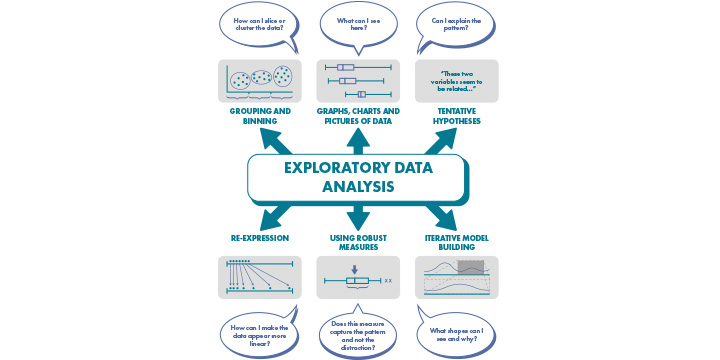09 April 2020

What does research suggest about teaching statistics using exploratory data analysis (EDA)?
- EDA is an informal and exploratory approach to statistics characterised by drawing different representations, searching for patterns and considering “what is going on here?”
- Statistics education research suggests using EDA at any age, and waiting until later to use CDA
- EDA allows students to be “data detectives”; using creative and varied approaches to statistics which may provide a richer, more coherent experience
- Creating and moving between different representations, as well as using proportional reasoning, are key skills that can connect students’ mathematical experiences across topics
- Students can use any useful representations (and invent their own) but should consider how robust these measures are
- Students should have access to data sets containing multiple data types so that they get used to independently sifting and selecting what to focus on
- Using research-supported technology such as TinkerPlots, Fathom and CODAP supports EDA by allowing students to test ideas and focus on data interpretation
View Espresso